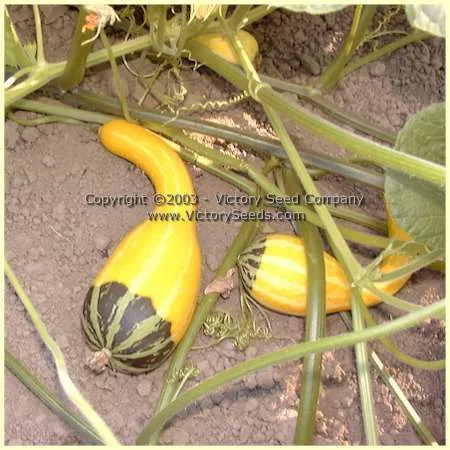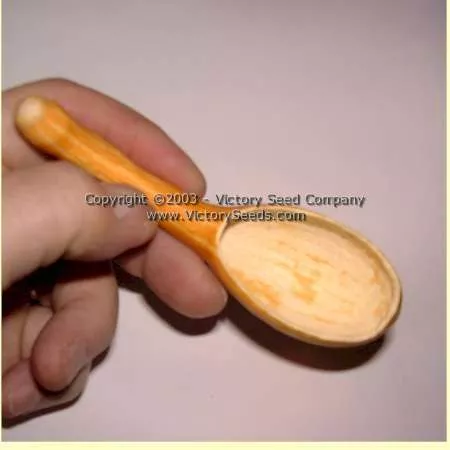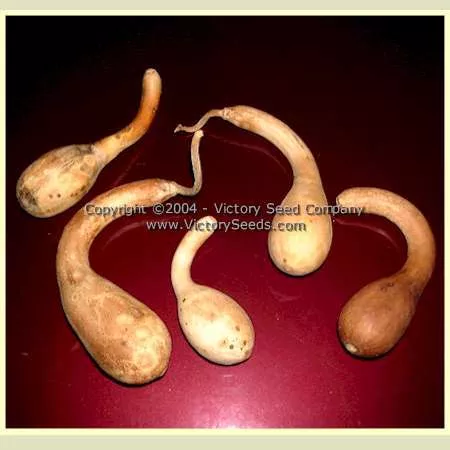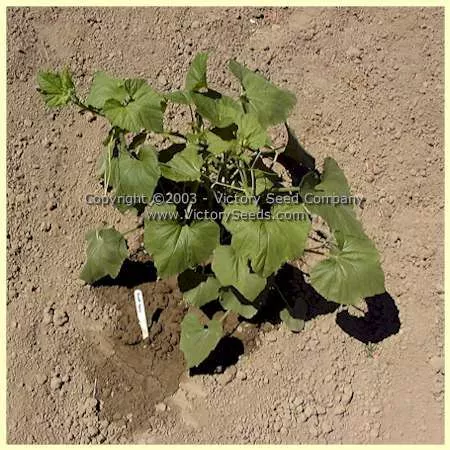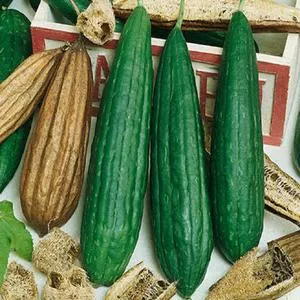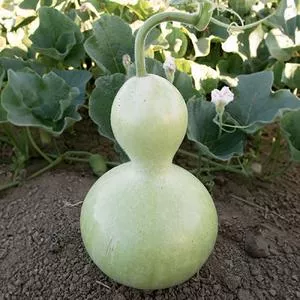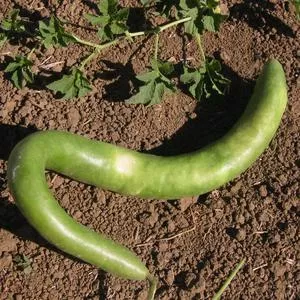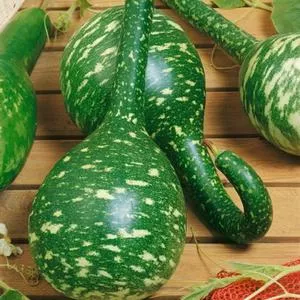



Small Spoon Gourd
Cucurbita pepo
Price: $3.25
SKU: 3200061100 days - As its name implies, the fruit of 'Small Spoon' gourds are fairly small, reaching five to six inch long. Their narrow, curved necks expand out to two to three inches at the blossom end, are bi-colored orange and green, and dry to the typical pale tan color. Its flowers are yellow and not white like most gourds.
If we consider that gourds in general are nature's utensils, 'Small Spoon' gourds are the epitome of this. Once they are allowed to cure and fully dry, the face of the bulbous end can be removed and cleaned out as seen in the photos above. They can then be sanded, given a light coat of vegetable oil, and used as you would any carved wooden utensil.
If we consider that gourds in general are nature's utensils, 'Small Spoon' gourds are the epitome of this. Once they are allowed to cure and fully dry, the face of the bulbous end can be removed and cleaned out as seen in the photos above. They can then be sanded, given a light coat of vegetable oil, and used as you would any carved wooden utensil.
Genetic Classification: Open Pollinated
Planting Instructions: Choose a location that has warm, well-drained and fertile soil. Work in plenty of organic matter and mulch to conserve moisture, as gourds are heavy water consumers.
Sow directly in garden after threat of frost has passed. Seed will not germinate if soil is too cold. Sow one inch deep in hills or rows spaced 24 to 30 inches apart.
These plants are grown like winter squash and require a lot of space and a long season for the fruits to reach full size.
Preparing the Gourds for Use:
Like winter squash and pumpkins, it is best to allow the fruits to fully mature on the plants and allowed to remain in the garden as long as possible. Once the plants have begun to die in the fall, and before any freezing temperatures arrive, cut the gourds from the main vines leaving a small (one to three inches) portion of stem attached. Move them to a warm, dry location that have good air circulation and is out of the direct sunlight. Allowing them to cure for several weeks to several months will allow them to fully harden.
Like winter squash and pumpkins, it is best to allow the fruits to fully mature on the plants and allowed to remain in the garden as long as possible. Once the plants have begun to die in the fall, and before any freezing temperatures arrive, cut the gourds from the main vines leaving a small (one to three inches) portion of stem attached. Move them to a warm, dry location that have good air circulation and is out of the direct sunlight. Allowing them to cure for several weeks to several months will allow them to fully harden.
Customer Reviews:
Do you have experience with this one? 📝 📣 Write a review!
No reviews have been posted yet.

